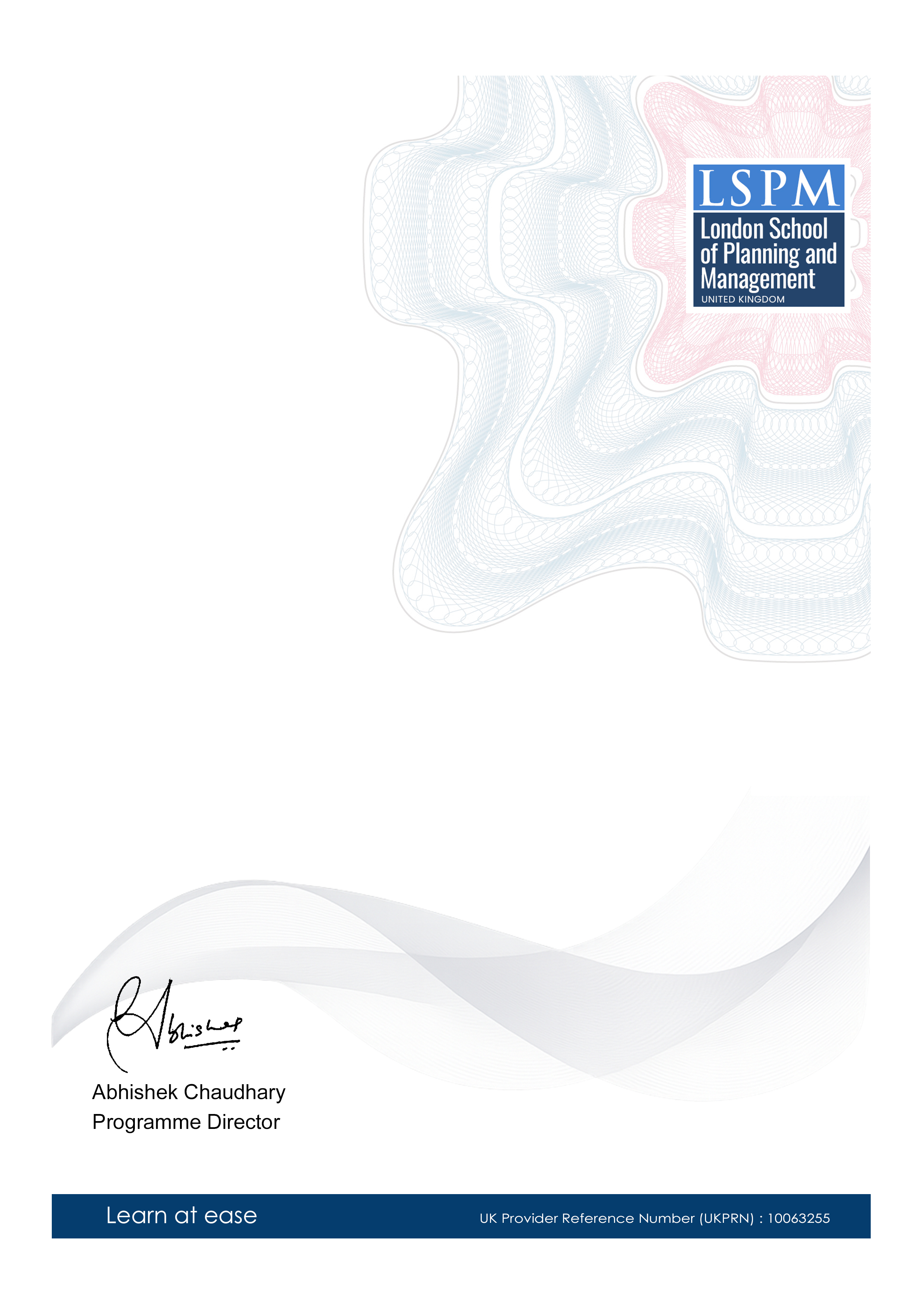Professional Certificate in Behavioral Economics for Food Service Management
-- viewing nowThe Professional Certificate in Behavioral Economics for Food Service Management is a crucial course designed to equip learners with the necessary skills to understand consumer behavior in the food industry. This program highlights the importance of applying behavioral economic theories to real-world food service management scenarios, thereby enhancing business performance and profitability.
4,522+
Students enrolled
GBP £ 149
GBP £ 215
Save 44% with our special offer
About this course
100% online
Learn from anywhere
Shareable certificate
Add to your LinkedIn profile
2 months to complete
at 2-3 hours a week
Start anytime
No waiting period
Course details
• Introduction to Behavioral Economics: Foundational concepts and theories in behavioral economics, including biases, heuristics, and decision-making.
• Behavioral Economics in Food Service: Overview of how behavioral economics impacts food service management, including customer decision-making and employee motivation.
• Nudging in Food Service: The concept of nudging and its application in food service management to encourage healthier choices and influence consumer behavior.
• Behavioral Pricing Strategies: The use of behavioral economics to develop effective pricing strategies in food service, including anchoring, framing, and bundling.
• Behavioral Design for Food Service: Designing food service environments and experiences that leverage behavioral economics to influence customer behavior and satisfaction.
• Behavioral Marketing in Food Service: Utilizing behavioral economics in food service marketing to improve customer engagement and loyalty.
• Behavioral Data Analysis for Food Service: Analyzing behavioral data to inform food service management decisions and improve business performance.
• Ethical Considerations in Behavioral Economics: Examining the ethical implications of using behavioral economics in food service management and ensuring responsible application.
Career path
Entry requirements
- Basic understanding of the subject matter
- Proficiency in English language
- Computer and internet access
- Basic computer skills
- Dedication to complete the course
No prior formal qualifications required. Course designed for accessibility.
Course status
This course provides practical knowledge and skills for professional development. It is:
- Not accredited by a recognized body
- Not regulated by an authorized institution
- Complementary to formal qualifications
You'll receive a certificate of completion upon successfully finishing the course.
Why people choose us for their career
Loading reviews...
Frequently Asked Questions
Course fee
- 3-4 hours per week
- Early certificate delivery
- Open enrollment - start anytime
- 2-3 hours per week
- Regular certificate delivery
- Open enrollment - start anytime
- Full course access
- Digital certificate
- Course materials
Get course information
Earn a career certificate

